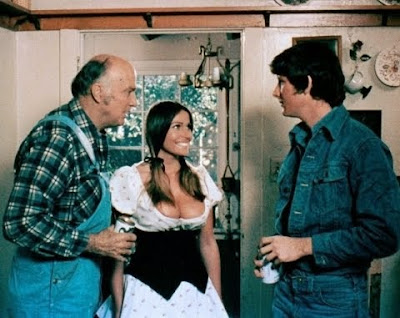Nocturnal Animals
There is a distinctive life in words, in writing. Sometimes it may resemble the author's personality, a mirror of his or her day to day actions that are visible to others. Perhaps more often, it may be an entirely different voice. Perhaps scathing, more erudite than what the tongue tied wallflower may typically verbalize. One's writing may be more honest than they allow through utterances and even facial expressions, behavior. When an author passes away, their "voice" remains as long as there is a medium through which we can read their words. Since we are discussing film, I can relay that I feel Roger Ebert is still with us through his library of reviews. Such a patented, distinctive point of view. A mind as sharp as any on the Chicago Sun Times staff, or his many film critic peers. I can open one of his essays and feel as if he is sitting across from me.
Metaphor comes in handy for writers. Not for just those concerned with fiction. Sermons, news articles, even some technical writing employs this handy device to use something to represent something else, often in a vivid, colorful fashion. In the early moments of 2016's NOCTURNAL ANIMALS, a woman named Susan (Amy Adams) receives in a gift in the mail from her ex-husband: a galley of his first completed novel, Nocturnal Animals, dedicated to her. We will learn through flashbacks that Edward (Jake Gyllenhaal) was a sensitive, tortured artist who found he could do nothing but write, even as he attempted to support his more career driven spouse.
Susan is currently married to Hutton (Armie Hammer), a cold, faithless business executive who barely acknowledges her. She's become skilled at convincing her friends (and herself) that's she's content, fortunate for her success as an art gallery owner and her affluent lifestyle, one that was never possible with Edward.
With Hutton out of town, Susan immerses herself in the novel. It is a relentlessly bleak tale of a family terrorized by a gang of punks on a lonely West Texas highway. Also, its terrible aftermath. She frequently slams the book shut in horror. It is not an easy story to read, nor is it for the viewers of this movie to watch. Director Tom Ford visualizes the events of the novel without relief. The lengthy scene on the road is incredibly uncomfortable and disturbing. While later events - involving a hard as nails detective named Bobby (Michael Shannon, who excels) - do offer some sense of justice, the darkness pervades. Nocturnal Animals will be as bleak as anyone could imagine, right to the end.
Why did Edward write this novel? Why did he dedicate it to his wife? What demons was he exorcising? You'll find out, invisible audience. The metaphors are devastating, suited to their real life counterparts.
I'm not sure what I was expecting with NOCTURNAL ANIMALS. Possibly something along the lines of ADAPTATION, Spike Joneze's mind-bending 2002 drama. I did not know much about the movie beforehand other than via some hastily written synopses, vague enough to intrigue. And that's how it should be. I did not watch the trailers. This movie is not as complex and metaphysical as the Jonze movie, but its statements of how life begats the written word and vice versa are no less fascinating. This is a movie that continues to reveal its concepts days after viewing. A rabbit hole of themes:
-The future commenting on the past, and the past elucidating what is to come.
-The validation of one's choices in life, perhaps also as a weapon of....
-Revenge, that's fairly obvious. We even see a painting with those very letters in Susan's gallery.
-Art as catharsis, possibly because of its role as a vessel of revenge.
-Art as exploitation, announced with great audacity during the opening credits. I don't believe I have ever seen anything like it. Quite Lynchian, in a way, but I bet even David would be taken aback.
Some viewers will exit NOCTURNAL ANIMALS feeling as if their souls were bathed in acid. This is a grim movie. Three movies, actually. Present, Past, and Fiction. When we get to the final scene, we understand why it happens. We'll come away with a heavy heart, and because of that I would say the film achieved its objective.



Comments